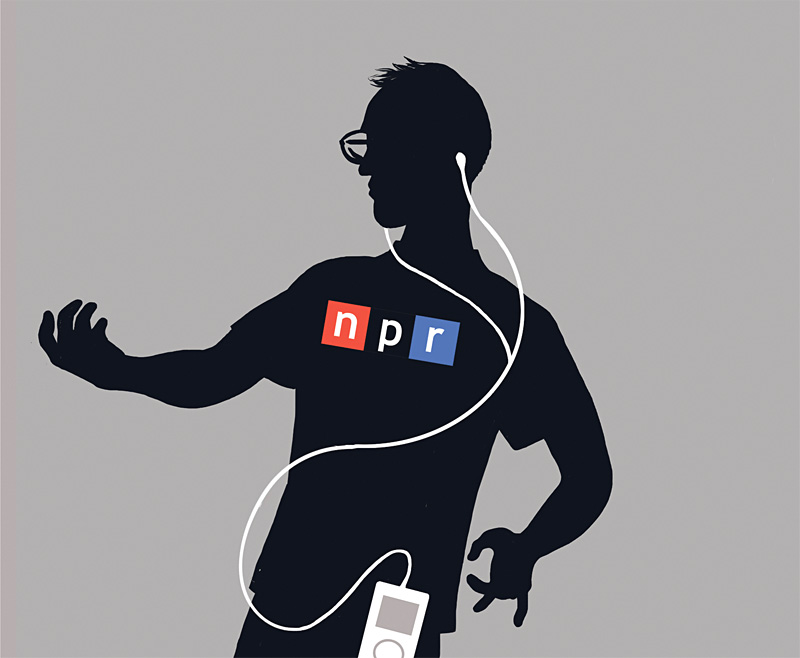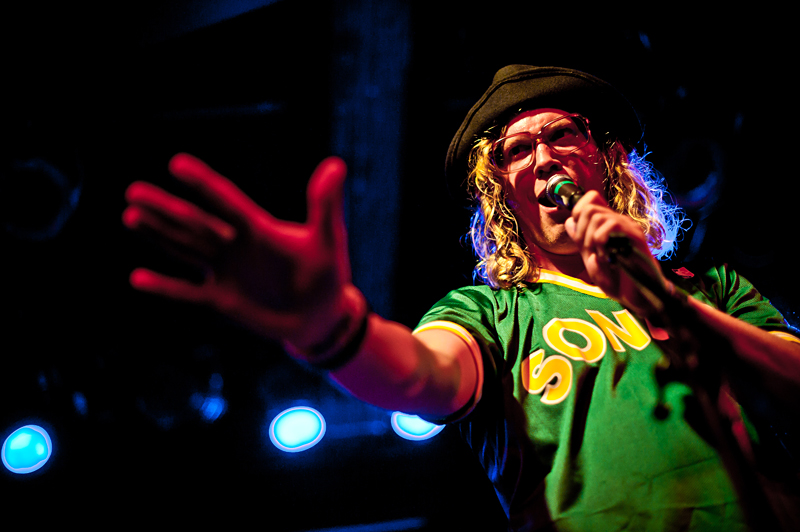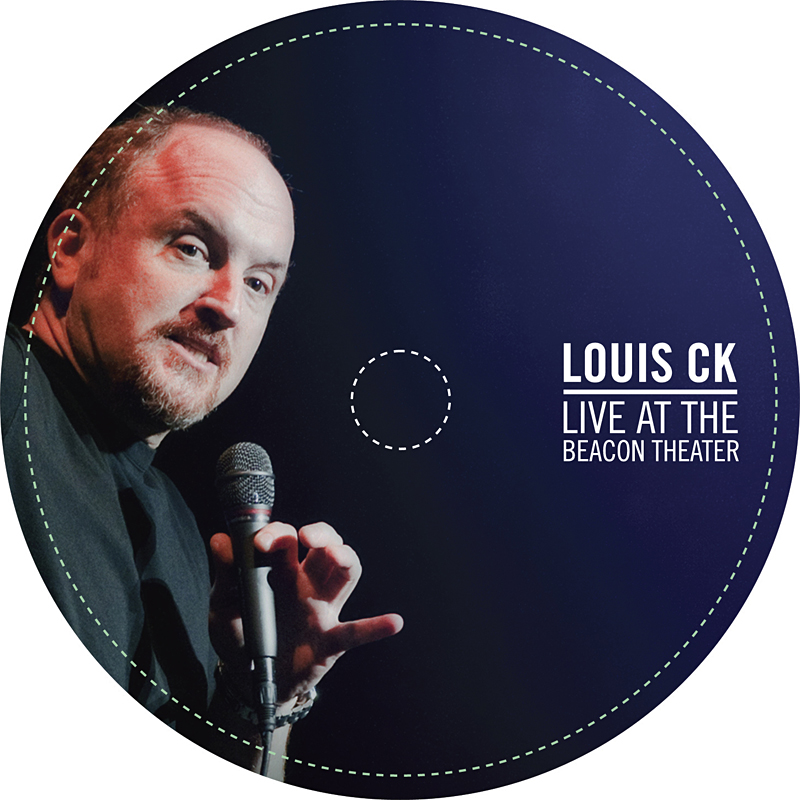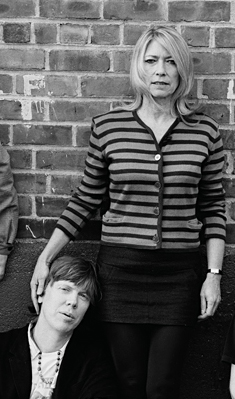As publicist for the rock band Wilco, Deb Bernardini can pretty much count on the band getting publicity any time they need it. Because Wilco is one of the most successful indie bands in the country, she can land a slot on The Late Show With David Letterman or have its latest album reviewed by David Fricke at Rolling Stone with relatively little hassle. But over Wilco’s 15-year career, she’s turned to one promotional outlet time and again—National Public Radio. Why would a rock-‘n’-roll publicist rely on a medium known for its devoted following of college-educated, hybrid-driving, tote bag–slinging, granola-munching, Obama-voting elitists?
“To be frank,” says Bernardini, “[NPR] sells records.” To be fair, the NPR audience is a very broad swath of folks, not just blue-state yuppies. Still, “the NPR crowd” is hardly a demographic that springs to mind when discussing today’s music-buying public. But among all the recent hand-wringing over how to battle disastrous record sales, the death of radio, and the demise of good music journalism, NPR seems to have something artists crave—like Starbucks, they have customers who are curious and actually buy music.
Of course, selling records was (and still is) the last thing Bob Boilen had in mind when he pushed for NPR to begin covering music more rigorously. Having begged Ira Glass in 1988 to give him a job at NPR’s Washington, D.C., headquarters, Boilen went from associate producer to director of All Things Considered. Throughout, he was overwhelmed by the amount of music he received each week from artists looking for airplay. At the time, the only use for that music was as “buttons,” the snippets of songs that glue together news segments. When NPR went online, Boilen convinced his bosses to let him produce a music show, called All Songs Considered, which NPR ran in 2000 as a web exclusive. The show then migrated to the airwaves as a weekly segment spotlighting some of the music used during regular broadcasts—much of it from the indie-rock world Boilen favored, such as Andrew Bird and Regina Spektor. Seven years later, NPR launched NPR Music (npr.org/music), a sister website with Boilen at the helm. Though it might have seemed NPR was trying to cut in on Pitchfork’s game, Boilen says the impetus was much more practical.
“It was really done to help pull our member stations together under one umbrella,” he says. “That, and to help give NPR a name in music coverage.”
That said, NPR Music came out swinging, with a deep well of musical content produced at stations all over the country. But because the web is the web, Boilen saw opportunities for expansion, from a blog written by Sleater-Kinney guitarist Carrie Brownstein to intimate in-studio performances (dubbed Tiny Desk Concerts) to obsessive lists compiled by noteworthy artists. He’s also turned NPR Music into one of the premier places for streaming full albums before they’re released—a promotional opportunity that’s a goal for many of his clients, says Ever Kipp, owner of the publicity firm Tiny Human and publicist for local label Barsuk. Landing full-album streams on NPR—for example, for Laura Veirs’ July Flame, Phantogram’s Eyelid Movies, and Menomena’s Mines (released Tues., July 27)—is “self-propagating,” says Kipp, noting how quickly they get picked up and linked to by other websites.
But unlike so many music sites, Boilen has emphasized strong reportage, making NPR Music one of the few remaining outlets hiring actual journalists to cover music in a thoughtful, detailed manner.
“They’re not just regurgitating press releases,” says Kipp. “They are always going deeper into the music. They take the path less taken when it comes to reportage.”
And because it’s still at its core a form of radio, NPR Music has one big advantage over nearly every other music-journalism outlet—it doesn’t waste words trying to explain what music sounds like.
“It’s radio—people can listen to it and decide if they like it or not,” says Boilen.
On any given day, one might hear (and/or read in text form) a feature on musicians banned from performing in their native countries; a special on Lauryn Hill’s return to performing; an exclusive preview of a forthcoming album; a list of favorite songs compiled by a well-known classical musician; or a story on Latin America’s female-dominated rock scene.
Yet NPR Music wouldn’t mean a thing if nobody was listening. According to Boilen, about 32 million people overall do. But it’s the type of people who listen that really counts for artists and their labels.
“My experience with the public-radio listener is that they generally listen,” says Bernardini. “They don’t change the station if they have never heard of the band that is being featured. They’re a dedicated, loyal bunch.” Furthermore, they’re some of the most thoughtful when it comes to commenting on NPR Music blog posts, writing actual informed responses as opposed to “You guys suck!”
While artists looking for exposure today have countless outlets, most don’t get them very far. “As a publicist,” says Kipp, “the hardest thing is to get past that core fan base and break through to a broader one.” Sites like Pitchfork and Paste offer great exposure, but they’re visited almost exclusively by indie-music lovers, a sliver of the population—most of whom have little money to spend. But since the average NPR listener is not only open-minded but relatively well-off to boot (most pull in annual household incomes over $150,000 and actively patronize the arts, according to a 2002 study), chances are much higher that they’ll buy your latest record—higher even than if you appear on Letterman or Saturday Night Live.
“There’s certainly a prestige in playing those shows,” says Boilen. “But a lot of bands see a bigger bump in sales from NPR. I hear it from PR people all the time. The most recent—though he’s probably not the most representative—being Weird Al Yankovic.”
Boilen gets a lot of props for being so forward-thinking with NPR Music. But in many ways, his approach is about as traditional as the The New York Times‘ style section. In determining what to cover, Boilen throws away all press releases, focusing solely on the music. When he’s narrowed the pool a bit, he does a little research on the artists, searching for unique angles before going out on assignment. Because NPR is a nonprofit, he feels no pressure from commercial interests. But labels and publicists both see direct results, because NPR listeners hear about their artists…on the radio. It all sounds, well, pretty old-school. Like radio.
“Well, we all come from radio backgrounds,” says Boilen of him and his staff. “We’re not just putting up music for the sake of putting up music. There’s always a story to be told.”








